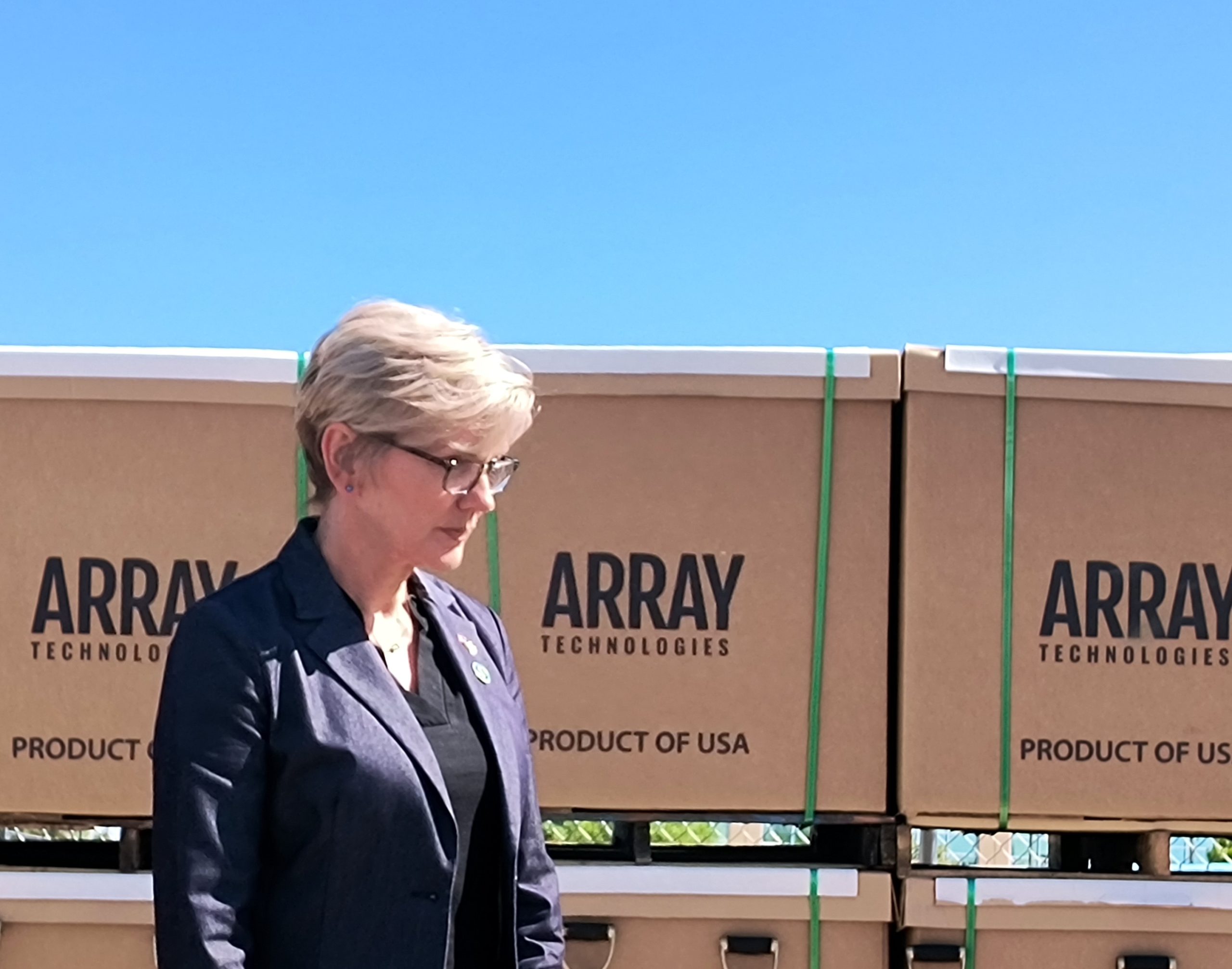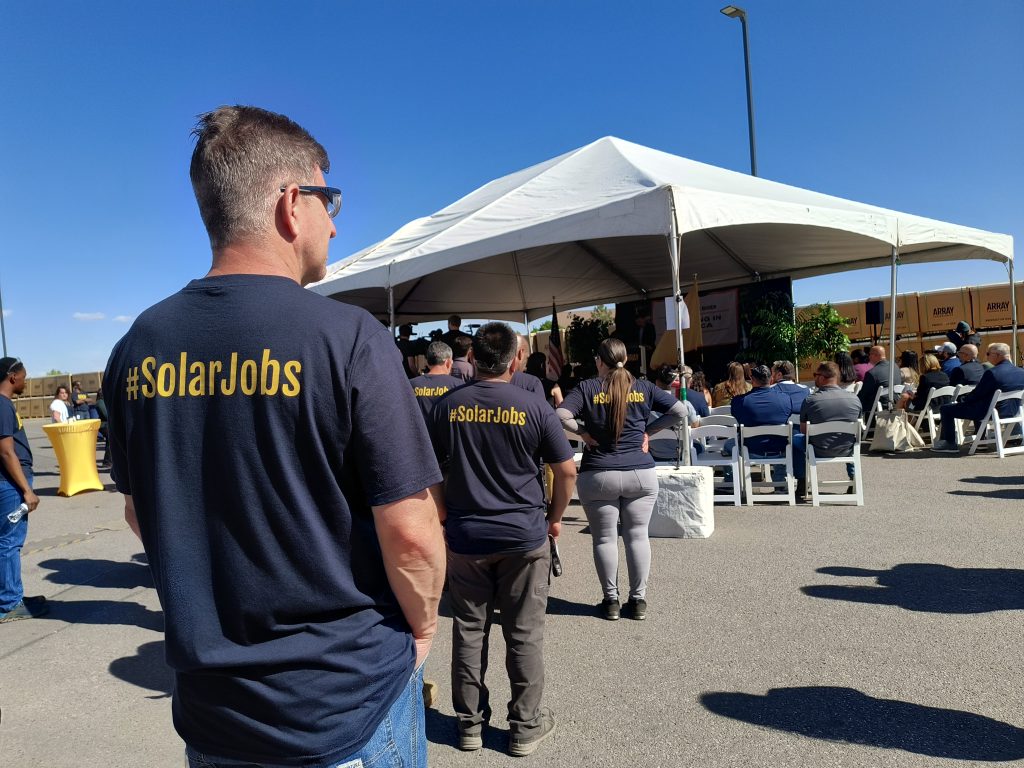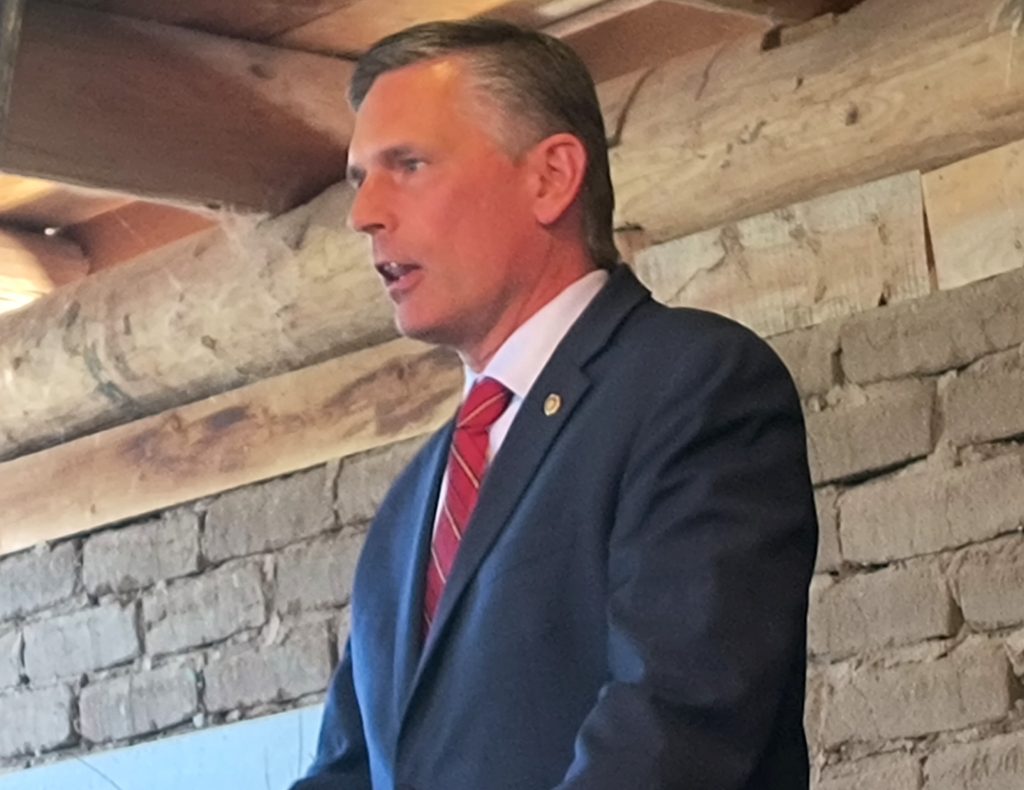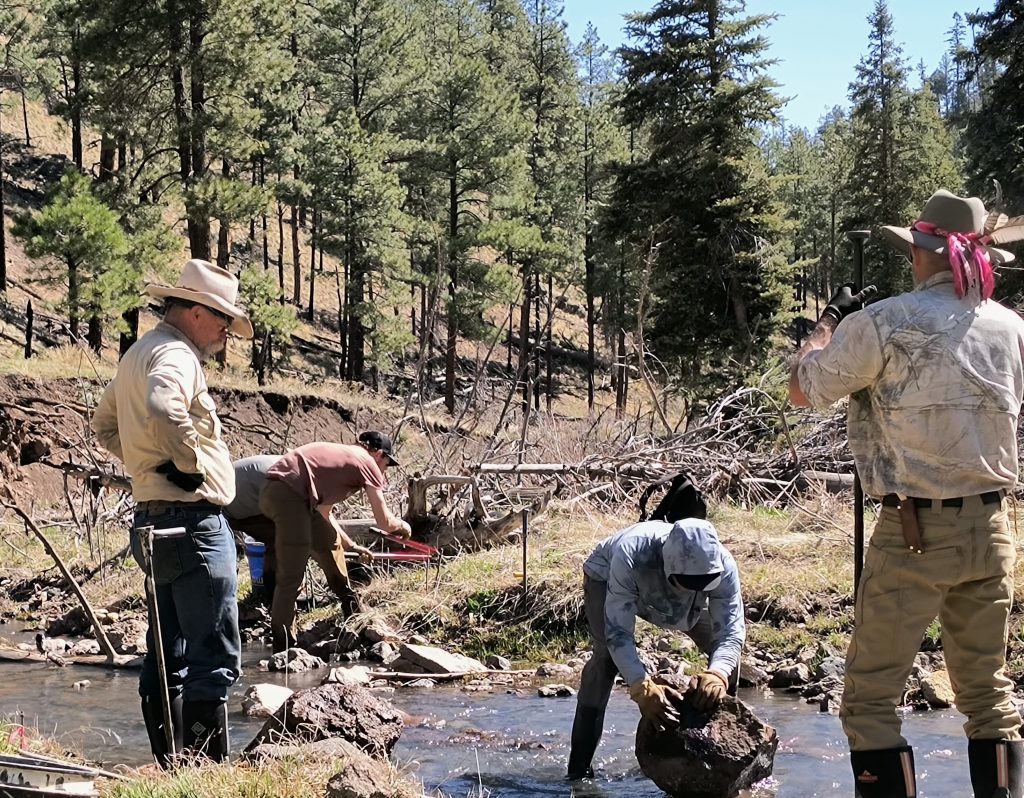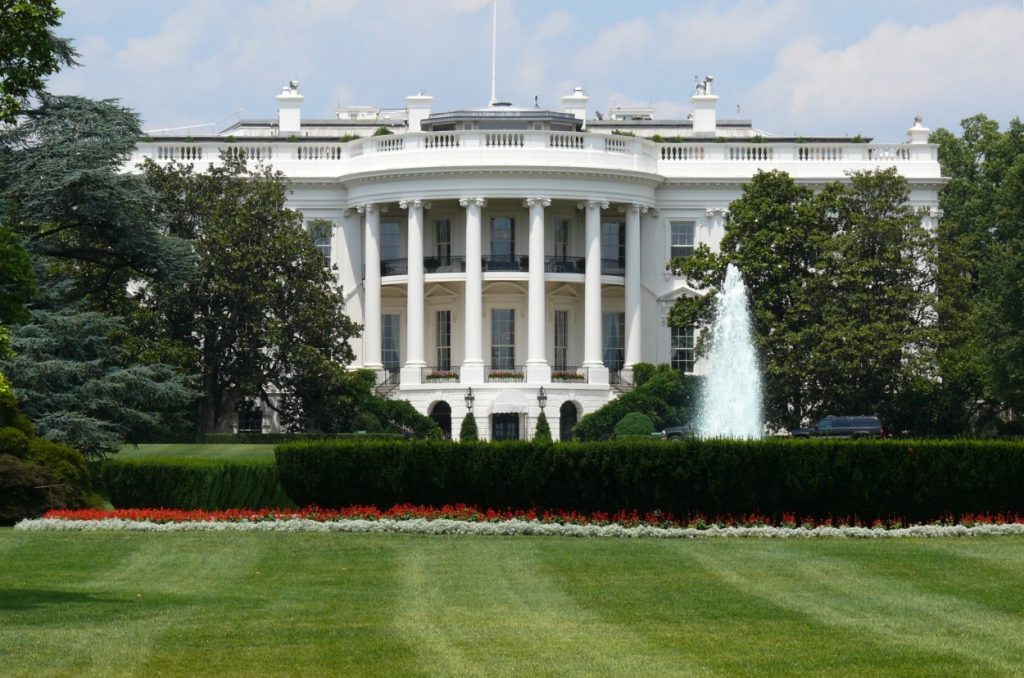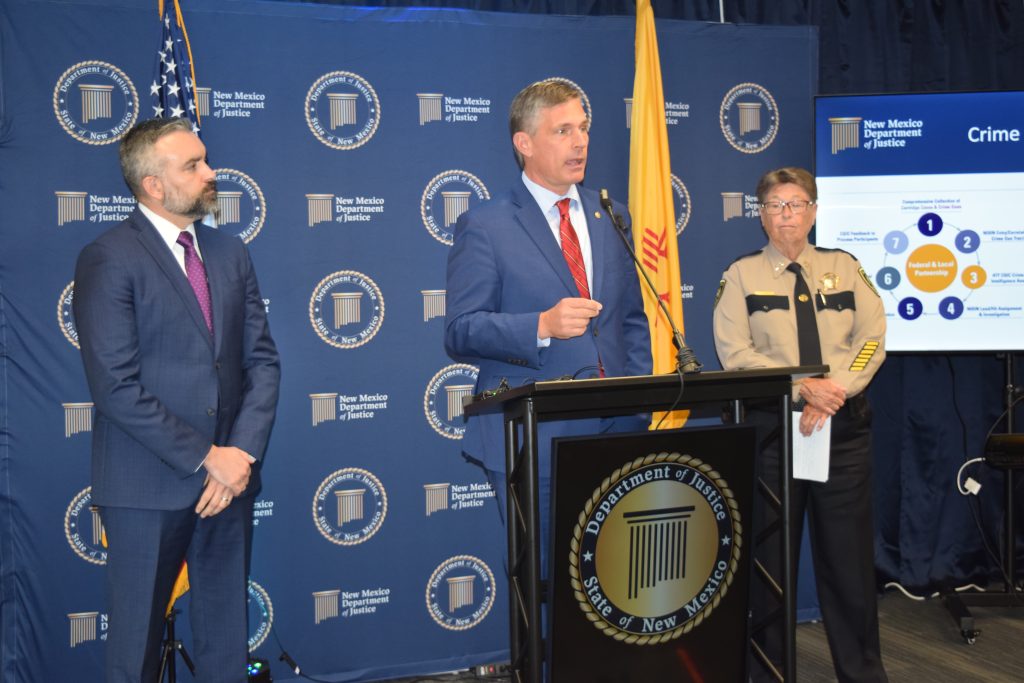Jennifer Granholm, the secretary of the Department of Energy, spoke about how the federal Inflation Reduction Act has created jobs and led to business expansions during a visit to Albuquerque on Friday.
While in Albuquerque, Granholm celebrated the groundbreaking of an expanded solar tracking manufacturing campus.
Array Technologies is building a new facility in west Albuquerque in addition to an already existing site.
The new $50 million facility in west Albuquerque is expected to provide more than $300 million in economic benefits to the city over the next ten years.
The new campus will be about 216,000 square feet and will employ more than 300 people who will work producing, assembling, designing and engineering solar tracking technology as well as assisting customers.
Array received $2.5 million in economic assistance from the state’s Local Economic Development Act job-creation fund, and both Albuquerque and Bernalillo County provided $250,000 in LEDA funds as well as a partial property tax abatement through an industrial revenue bond.
The company is also benefiting from incentives in the federal Inflation Reduction Act, a 2022 law that includes the largest investment in addressing climate change in the country’s history.
In particular, Array Technologies says the production tax credit made the expansion possible.
Array Technologies is among hundreds of businesses nationwide that have benefited from the incentives available through the Inflation Reduction Act.
Granholm said that in the energy sector alone more than 600 companies have announced that they are expanding operations or opening up a facility in the United States because of President Joe Biden’s Investing In America Agenda. That agenda includes the Inflation Reduction Act as well as other key pieces of legislation such as the bipartisan infrastructure law and the CHIPS and Science Act.
Those expansions and new facilities represent tens of thousands of good paying jobs, she said.
“That’s just so far,” Granholm said. “These credits last 10 years to give industry certainty about expanding. And so we’re excited. Everyday we open up the newspaper and there’s another factory that’s announced that it is opening up.”
Granholm not only visited the groundbreaking at Array Technologies on Friday. She also headed south to Belen for a ribbon cutting at Arcosa Wind Towers, a wind turbine manufacturing facility that has also benefited from the Inflation Reduction Act. Arcosa previously hosted Biden during a visit last year where he described the facility as an example of the Inflation Reduction Act at work.
Granholm said that the Inflation Reduction Act has led to eight companies in New Mexico saying they will expand operations. Those companies include Array Technologies.
She said the United States has an incredibly low unemployment rate, which can also be seen in New Mexico.
“Part of that is due to this explosion of manufacturing across the country as a result of the Inflation Reduction Act, the bipartisan infrastructure law, (and) the CHIPS and Science Act,” she said.
Granholm said New Mexico’s senators played important roles in drafting sections of the Inflation Reduction Act that have brought those benefits to the state.
U.S. Sen. Martin Heinrich, a Democrat representing New Mexico, said at the groundbreaking that the three laws that Granholm referenced have “created incredible demand” for workers to fill manufacturing jobs.
“It’s a great time to be in the skilled trades or in manufacturing in the state of New Mexico,” he said.
He said the growth in the industry has led to challenges in filling job openings.
“Our biggest challenge right now is creating the workforce to fill that demand,” Heinrich said. “And that’s a good problem to have.”
One way that the Inflation Reduction Act is helping build that workforce is through incentivizing apprenticeships. The Inflation Reduction Act provides increased tax credits for companies that meet certain criteria including utilizing apprentices and pay prevailing wages.
U.S. Sen. Ben Ray Luján described the Inflation Reduction Act, bipartisan infrastructure law and CHIPS and Science Act as job creators. He said the policies were focused on bringing back jobs that were no longer available in the United States.
He said those jobs are “now here and they’re in New Mexico. That’s why I’m so proud to be a part of this and to have supported this legislation.”
During the groundbreaking at Array Technologies, Granholm commented on the shirts that employees were wearing. The shirts all had the phrase #SolarJobs on their back. She said workers are crucial to the current industrial revolution.
She said the industrial strategy starts by “making America irresistible to investments.”
One way of doing that is through tax credits like those seen in the Inflation Reduction Act.
“We’re giving tax credits to manufacturers who supply these clean energy products, including trackers and of course solar panels, etc,” she said. “And we’re giving tax credits to utilities and to individuals to create demand for the products.”
The Inflation Reduction Act passed in 2022 and only one member of New Mexico’s congressional delegation opposed it at the time. That member was former U.S. Rep. Yvette Herrell, a Republican who was ousted from her seat a few months later by current Rep. Gabe Vasquez, a Democrat. Herrell is now running against Vasquez for that same seat.
The Inflation Reduction Act has brought more than just expanded businesses to New Mexico.
Earlier this week, the U.S. Environmental Protection Agency announced that the state will receive $156 million to expand access to solar thanks to a funding from the Inflation Reduction Act.
Funding from the Inflation Reduction Act is also being used to expand access to clean water and to reduce emissions from the transportation sector.

